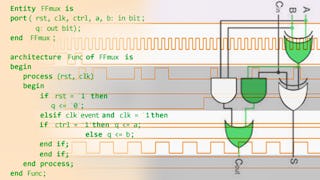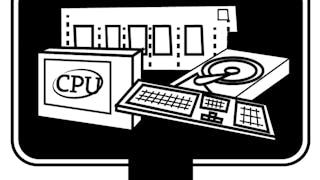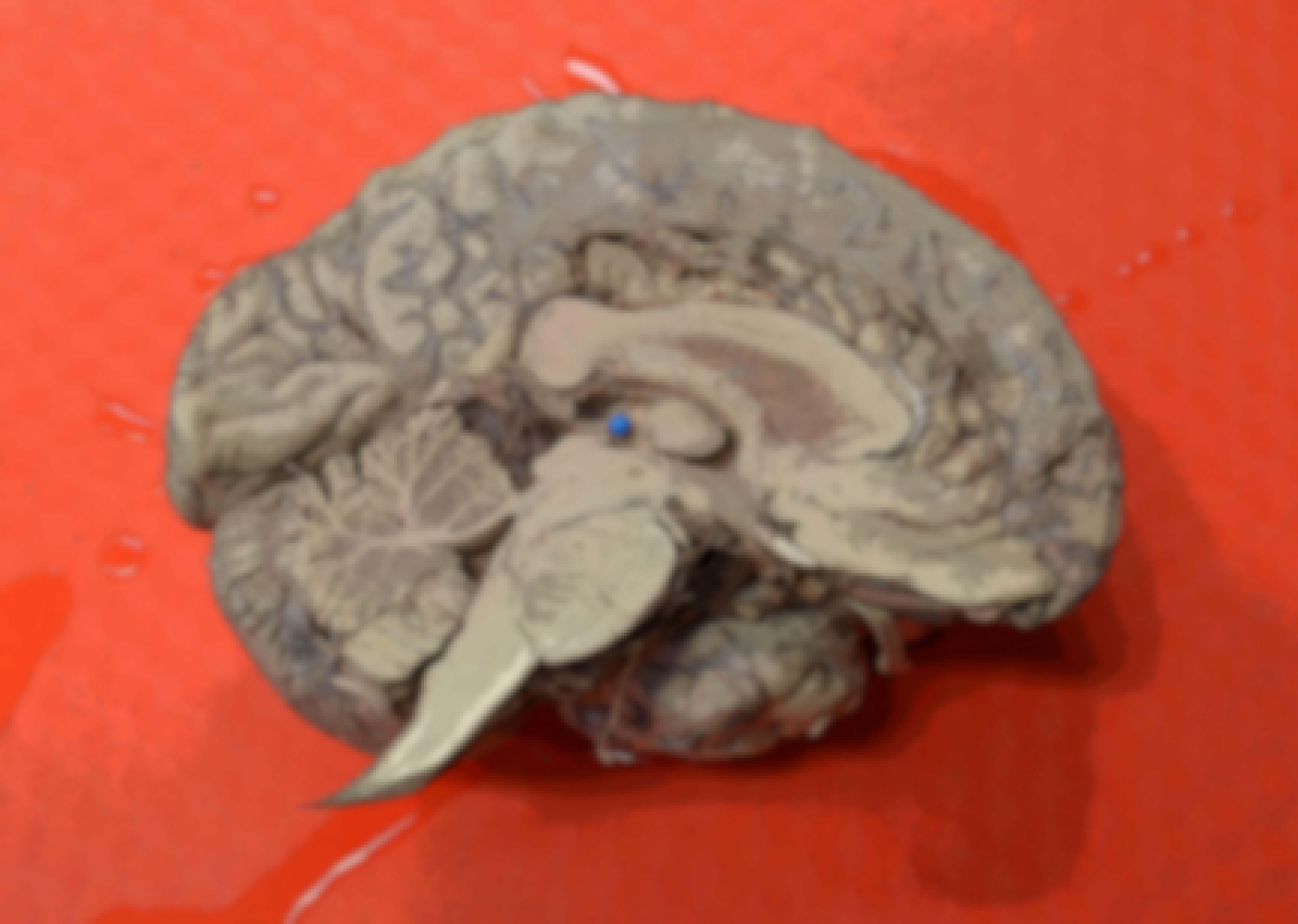- Browse
- How Things Work
Results for "how things work"
 Status: NewNewStatus: Free TrialFree Trial
Status: NewNewStatus: Free TrialFree TrialSkills you'll gain: Design Elements And Principles, Growth Mindedness, Goal Setting, Personal Development, Detail Oriented
Mixed · Course · 1 - 4 Weeks
 Status: PreviewPreviewI
Status: PreviewPreviewIInstitut Mines-Télécom
Skills you'll gain: Wireless Networks, Network Security, Network Architecture, Computer Networking, Network Infrastructure, Mobile Security, Network Protocols, Telecommunications, Digital Communications, Dataflow, Capacity Management
4.7·Rating, 4.7 out of 5 stars131 reviewsIntermediate · Course · 1 - 3 Months
 Status: PreviewPreviewU
Status: PreviewPreviewUUniversitat Autònoma de Barcelona
Skills you'll gain: Computer Architecture, Hardware Architecture, System Design and Implementation, Embedded Systems, Application Specific Integrated Circuits, Digital Design, Design Software, Computer Hardware, Verification And Validation, Simulations
4.3·Rating, 4.3 out of 5 stars852 reviewsIntermediate · Course · 1 - 3 Months
 Status: Free TrialFree Trial
Status: Free TrialFree TrialSkills you'll gain: Cloud Computing Architecture, Wireless Networks, Cloud Computing, Internet Of Things, Cloud Platforms, Local Area Networks, Emerging Technologies, Network Architecture, Telecommunications, Amazon Web Services, Infrastructure As A Service (IaaS), Software As A Service, Hardware Architecture, Network Protocols, Amazon Elastic Compute Cloud
4.6·Rating, 4.6 out of 5 stars1.3K reviewsBeginner · Course · 1 - 3 Months
 Status: Free TrialFree TrialU
Status: Free TrialFree TrialUUniversity of London
Skills you'll gain: Computer Science, Computer Systems, Web Applications, Computer Literacy, Network Security, Computer Networking, Computational Thinking, Debugging, Web Design and Development, Cybersecurity, Problem Management, Software Architecture, Data Storage
4.6·Rating, 4.6 out of 5 stars573 reviewsBeginner · Course · 1 - 4 Weeks
 Status: Free TrialFree Trial
Status: Free TrialFree TrialSkills you'll gain: Prompt Engineering, Brainstorming, Timelines, ChatGPT, LLM Application, Taking Meeting Minutes, Large Language Modeling, Google Gemini, Business Writing, Writing, Text Mining
4.8·Rating, 4.8 out of 5 stars921 reviewsBeginner · Course · 1 - 4 Weeks
 Status: PreviewPreviewT
Status: PreviewPreviewTThe University of Chicago
Skills you'll gain: Neurology, Physiology, Anatomy, Behavioral Health, Mental and Behavioral Health, Mental Health Diseases and Disorders, Vital Signs, Control Systems, Coordination, Biology, Communication Systems
4.9·Rating, 4.9 out of 5 stars3.2K reviewsBeginner · Course · 1 - 3 Months
 Status: Free TrialFree TrialU
Status: Free TrialFree TrialUUniversity of Pennsylvania
Skills you'll gain: Business Ethics, Case Studies, Risk Control, Compliance Management, Governance, Ethical Standards And Conduct, Policy Analysis, Economics, Policy, and Social Studies, Socioeconomics, Social Sciences, Law, Regulation, and Compliance, Analysis, Political Sciences, Economic Development, Psychology, Business Economics
4.7·Rating, 4.7 out of 5 stars550 reviewsIntermediate · Course · 1 - 4 Weeks
 Status: PreviewPreviewU
Status: PreviewPreviewUUniversiteit Leiden
Skills you'll gain: Language Competency, Language Learning, Language Disorders, Anthropology, Multilingualism, English Language, Communication Disorders, Cultural Diversity, Oral Comprehension, Interviewing Skills, Vocabulary, Grammar, Cultural Sensitivity, Interpersonal Communications, Social Sciences, Sociology, Research Methodologies
4.7·Rating, 4.7 out of 5 stars2.5K reviewsBeginner · Course · 1 - 3 Months
 Status: FreeFreeP
Status: FreeFreePPrinceton University
Skills you'll gain: Risk Analysis, Analysis, Systems Thinking, World History, International Relations, Social Network Analysis, Financial Systems, Public Health, Governance, Epidemiology, Complex Problem Solving, Economics, Supply Chain
4.7·Rating, 4.7 out of 5 stars426 reviewsBeginner · Course · 1 - 3 Months
 Status: FreeFreeU
Status: FreeFreeUUtrecht University
Skills you'll gain: Child Development, Human Development, Speech Language Pathology, Developmental Disabilities, Systems Thinking, Pediatrics, Research, Neurology, Cultural Diversity
4.7·Rating, 4.7 out of 5 stars451 reviewsBeginner · Course · 1 - 3 Months
 Status: PreviewPreviewU
Status: PreviewPreviewUUniversity of Alberta
Skills you'll gain: Energy and Utilities, Innovation, Environment, Sustainable Development, Climate Change Mitigation, Transportation, Supply Chain, and Logistics, Environmental Policy, Oil and Gas, Supply Chain Management, Sustainable Technologies, Electric Power Systems, Emerging Technologies
4.8·Rating, 4.8 out of 5 stars101 reviewsBeginner · Course · 1 - 3 Months
Searches related to how things work
In summary, here are 10 of our most popular how things work courses
- How to Draw: A Beginner’s Guide Pt 2 – Form & Structure: Skillshare
- 4G Network Fundamentals: Institut Mines-Télécom
- Digital Systems: From Logic Gates to Processors: Universitat Autònoma de Barcelona
- IoT (Internet of Things) Wireless & Cloud Computing Emerging Technologies: Yonsei University
- How Computers Work: University of London
- Design Prompts for Everyday Work Tasks: Google
- Understanding the Brain: The Neurobiology of Everyday Life: The University of Chicago
- Corruption: University of Pennsylvania
- Miracles of Human Language: An Introduction to Linguistics: Universiteit Leiden
- Global Systemic Risk : Princeton University










